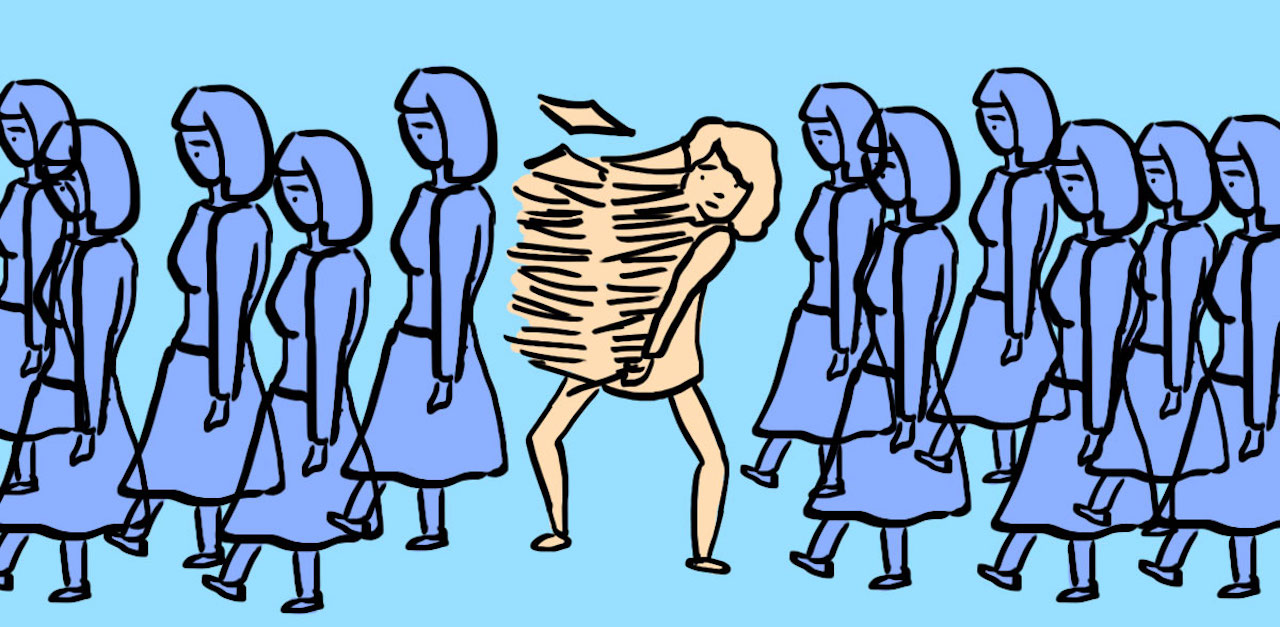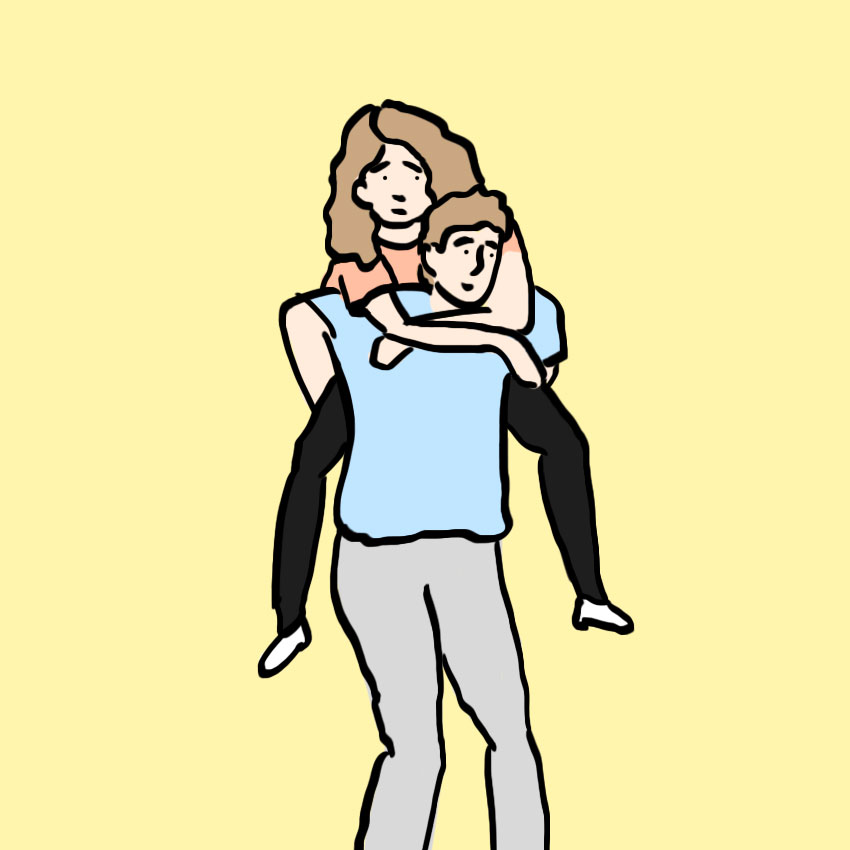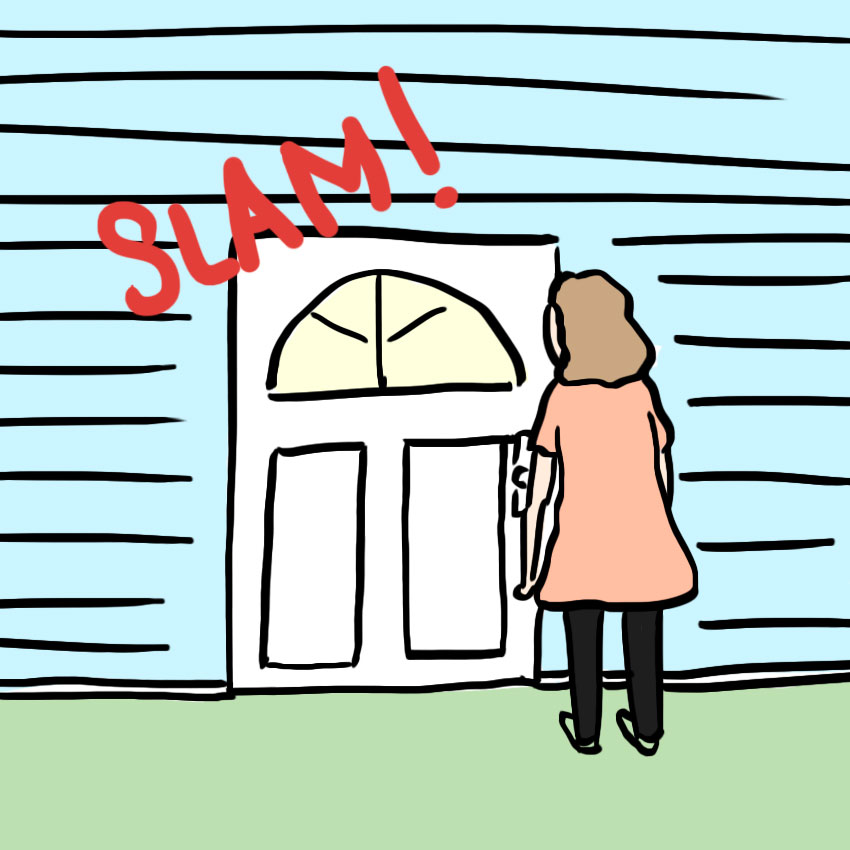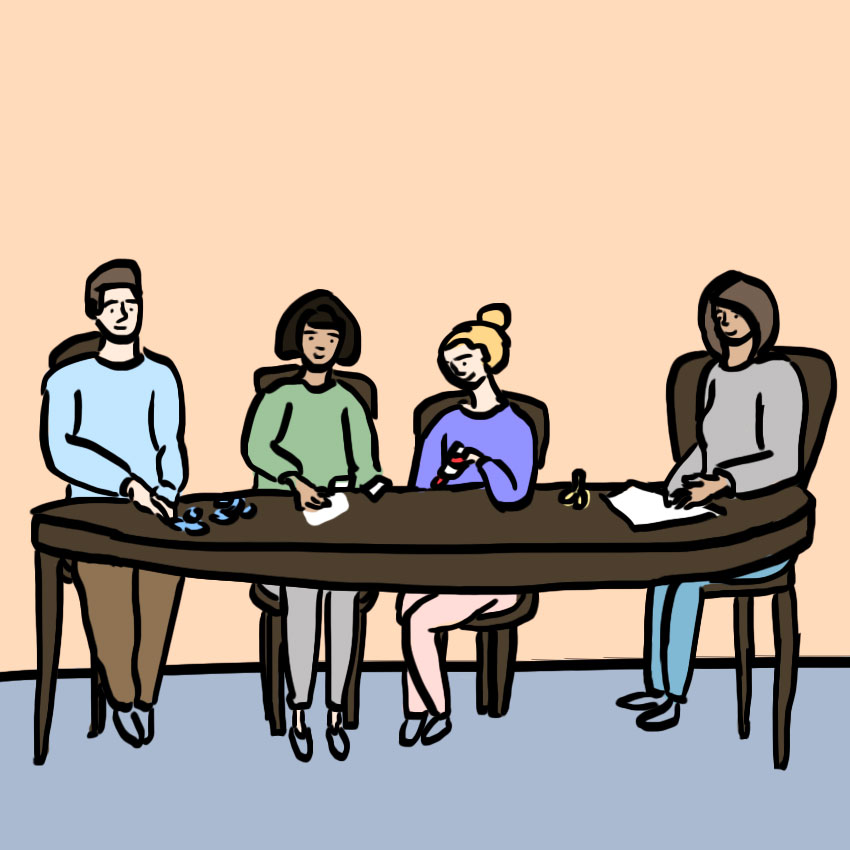
We're a culture that is all about self-reliance. We love to get things done, relying on our own wits and skills, and pull through a challenge with a creative solution spun together on the fly.
And really, nothing makes you feel better than rising above an obstacle all by yourself. It makes you feel capable, smart, and creative. It's why we love DIY projects so much! And being self-reliant is an important life skill for anyone to have.
However, there are times when we really can't do something all by ourselves, and although we consciously know that, too often we feel that there's no other way. We might even feel that if we don't, we're somehow falling short of the standards we've set for ourselves — even if those standards are impossible. Because let's face it: we all need help sometimes. Maybe it's for something little or maybe it's for something big, but no human being is an island.
When we work together, everyone gets ahead — whether it's a government helping out hundreds of new moms or a single person making life a little easier just for one day.
With such value placed on self-reliance, it can seem difficult and even frightening to ask for or accept help.
In fact, cultures that greatly value self-sufficiency, like ours, see large numbers of people finding it hard to ask for help.
But getting help is just as important as giving it, so read on to discover how to break down the barriers that may be holding you back!
Why Are We So Afraid To Ask For Help? Fear #1: Being Seen As Weak Or Incompetent

No one likes to admit that they don't know something or don't have the ability to complete a task, but in life, it's going to happen. It happens to everyone.
When we admit that we don't know something, we worry that people will think less of us, that their opinion of us will be diminished, and that our image will be tarnished.
But that's usually not the case. In fact, having the humility to ask for help usually makes people think more highly of us and they'll appreciate that you consider them worthy of asking!
Fear #2: Losing Control

Bringing someone else in to take charge means that you're no longer in charge, which can be a scary thing.
Even if a task is completely impossible to complete alone, we fear that bringing someone else on board will make things go in an unplanned direction and then we'll have to deal with unexpected consequences.
In reality, though, you'll be working together, and by combining your abilities, the outcome will be probably be better than if you had worked alone.
Fear #3: Being A Burden

Not all of our fears are based on our egos.
Sometimes, we're afraid to ask for help because we don't want to put someone out or give someone we care about even more to worry about. We imagine that if everyone is trying to handle everything all at once the way we are, then they couldn't possibly take on more responsibilities.
But think about it this way: if a friend asked for a favor, would you feel overwhelmed?
Well then, they probably won't either.
Fear #4: Being Rejected

No one likes the prospect of being turned down. It makes us feel bad, unworthy, and like a bother.
In fact, we dread rejection so much that we don't even consider the fact that we very well may not be rejected.
Often, we're so preoccupied with the potential rejection that we don't realize that for the other person, rejecting someone who is asking for help is even more awkward than being the one asking for it.
Fear #5: Being Indebted

Sometimes, we hesitate to ask for help, especially from certain people, because we worry about entering into a form of "contract" with them, where we'll feel bound to reciprocate the favor.
All kinds of awkward, unpleasant social drama can stem from something like this and it worries us so much that we avoid it altogether by not asking for help at all.
A true friend won't use your time of need against you in the future.
Of course, reciprocating and being supportive of them is the right thing to do, but if you find someone is manipulating your asking for help into making you do something for them, they might not truly be a friend.
How Can I Get Better At Asking For Help? Tip #1: Practice

Like anything, practice makes perfect.
Start with small things, like asking to borrow a pen or for advice on which nail polish looks better. If you have to ask for something big, practice what to say in front of the mirror or in front of your dog.
Practicing will help you ask for help in a clear and concise manner, without a lot of hemming and hawing, which makes things more drawn-out and awkward for everyone.
Tip #2: Be Specific

Asking for help in general doesn't yield a lot of results because the people you're asking won't know how to help.
Help your helpers by being as specific as possible. Instead of saying, "Can you help me do something about my house?" try, "Can you come over on Tuesday and help me put together a desk?"
Locking down a specific task and time will make your helper more clear about what you need. Try making a list of specific things you need help with.
Tip #3: Work As A Team

Think about your friends and family, and how each of their skills can help you. Then, match them with a specific task.
Your relative with the bad back, for example, might not be the person to ask for help with fixing a pipe under the sink, but maybe they can help you with a presentation for work.
It can also help to pull in multiple people. Being part of a team is fun and when you function as a unit, asking for help feels more natural.
Tip #4: Offer Help

It might seem like the opposite, but offering help to people will help you see things from the other side.
Helping someone sop up a spilled drink isn't such a big deal, so it won't be a big deal for someone else when you spill a drink in the future.
Offering help also has larger repercussions, too. It helps break down the idea that being 100% self-reliant is the only "right" way to be, and fosters a community of people who support and help one another freely and happily.
Tip #5: Accept Help When It's Offered

If someone simply offers you help, it can be just as hard to accept it as it is to ask for it.
How many times have you said, "No, I'm fine!" when you could have really used a hand? The truth is: people like to help. You probably like to help, too.
Helping someone else makes us feel good, and when someone offers you help, you're giving them a little boost by accepting.
Being able to solve a problem or get out of a jam on your own is an invaluable skill, but so is knowing when you need someone else.
We don't live all alone, so there's no reason to expect ourselves to do everything alone!
We hope these tips can help you get comfortable with being helped, as well as offering help. See? We love helping people, too!
Spread the help by SHARING these tips with everyone you know!




